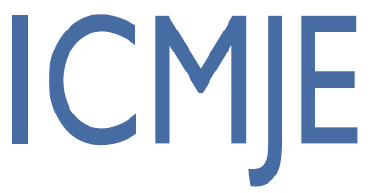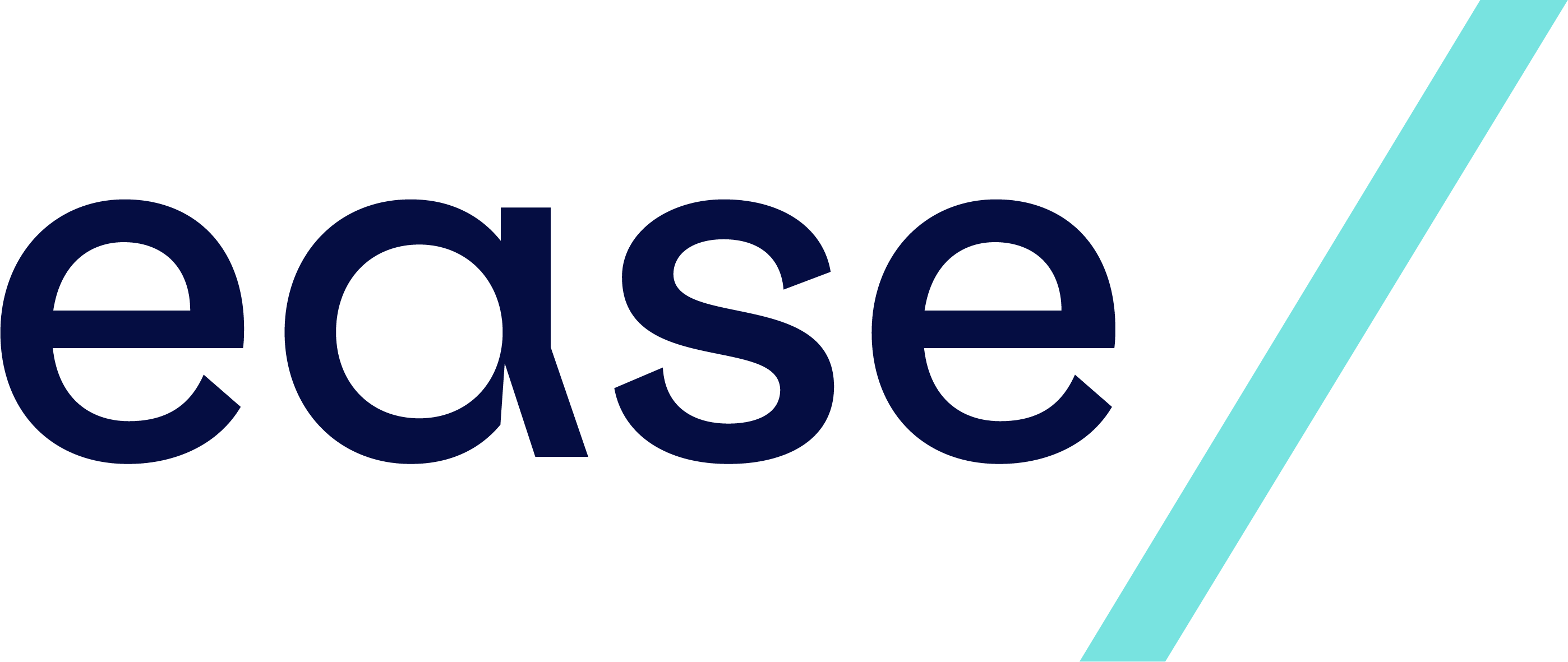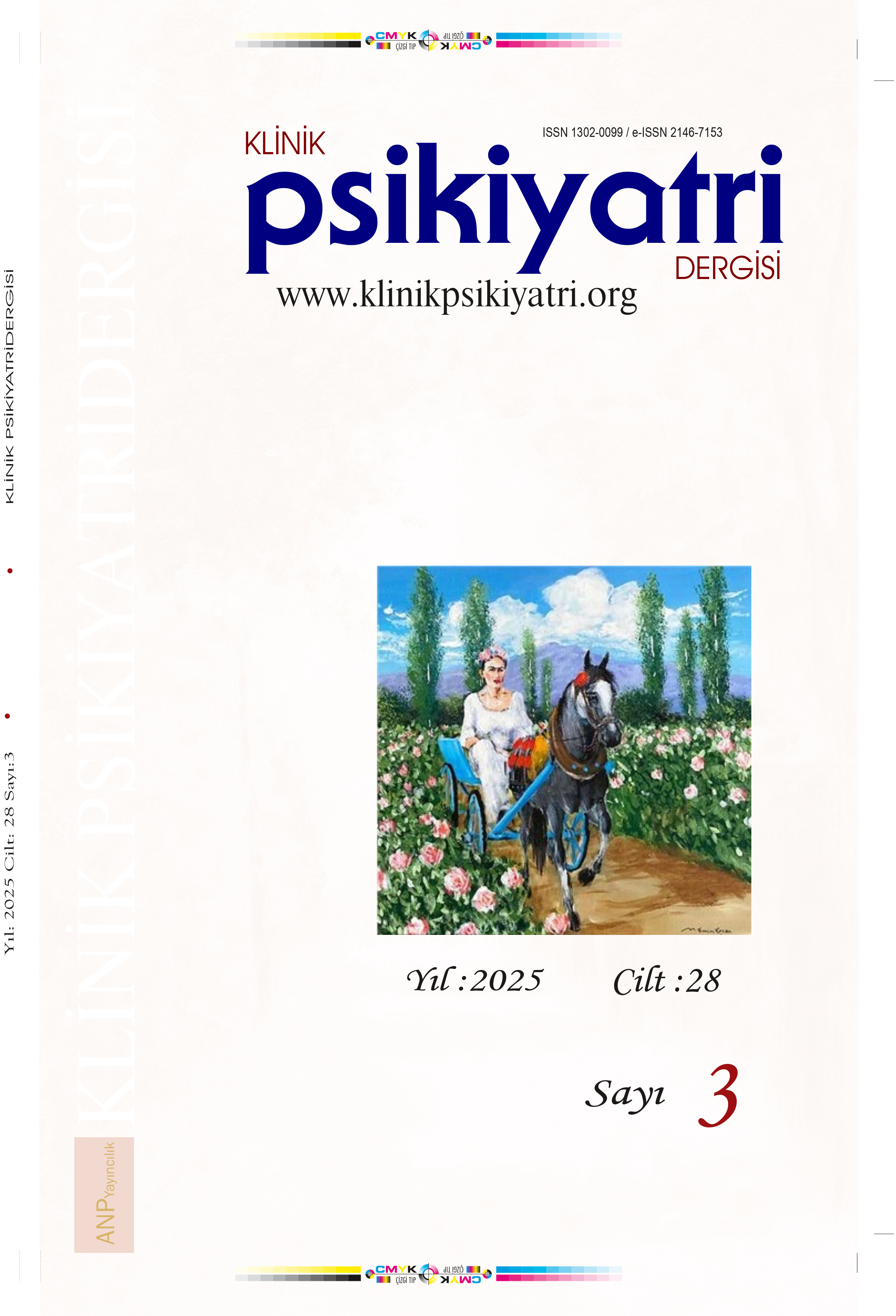




Bipolar I bozukluk tanılı ötimik hastalarda duygu düzenleme güçlüklerinin işlevsellik üzerine etkisi (tur)
Gözde Akbaba1, İbrahim Balcıoğlu21Yedikule Göğüs Hastalıkları ve Göğüs Cerrahisi Eğitim ve Araştırma Hastanesi, Psikiyatri AD, İstanbul2Yeni Yüzyıl Üniversitesi, Fen-Edebiyat Fakültesi, Psikoloji Bölümü
GİRİŞ ve AMAÇ: Son yıllarda yapılan birçok çalışmada bipolar bozuklukta hem atak dönemlerinde hem de ötimik dönemlerde yoğun işlevsellik kaybı olduğu gösterilmiştir. Çalışmanın amacı bipolar bozukluk tip I tanısı olan ötimik dönemdeki erişkinlerin duygu düzenleme güçlüklerinin işlevsellik üzerine etkisinin belirlenmesidir.
YÖNTEM ve GEREÇLER: Yaş, cinsiyet, eğitim durumu açısından eşleştirilmiş 36 kişiden oluşan Bipolar I (BP-I) tanısı alan hasta grubu ve 40 katılımcı ile bir kontrol grubu oluşturuldu. Duygu düzenlemeyle ilgili güncel ve klinik açıdan anlamlı güçlükleri değerlendirmek amacıyla Duygu Düzenlemede Güçlükler Ölçeği (DDGÖ) ve işlevselliğin değerlendirilmesi için Kısa İşlevsellik Değerlendirme Ölçeği (KİDÖ) uygulandı.
BULGULAR: DDGÖ ölçeği toplam (p=0,422), Kabullenmeme (p=0,870), Hedefler (p=0,488), Dürtü (p=0,220), Farkındalık (p=0,098), Stratejiler (p=0,682), Açıklık (p=0262) alt ölçekleri arasında, Wender Utah Derecelendirme Ölçeği toplam puanı (p=0,261) ve Hamilton Anksiyete Derecelendirme Ölçeği toplam puanı (p=0,766) açısından hasta ve kontrol grupları arasında anlamlı farklılıklar tespit edilemedi. KİDÖ toplam puanı her iki grupta benzer olmasına karşın (p=0,558), alt ölçek puanları açısından BP-I grubunda özerklik (p=0,010), bilişsel işlevsellik (p=0,048), mali konular (p=0,004) ve boş zaman etkinlikleri (p=0,007) puanları kontrol grubundan istatistiksel olarak anlamlı şekilde daha yüksekti. Hasta grubunda KİDÖ toplam puanı ile DDGÖ stratejiler alt ölçeği arasında anlamlı bir pozitif korelasyon vardı (r=0,338, p=0,044. KİDÖ ve DDGÖ farklı alt ölçekleri arasında zayıf-orta derecede anlamlı pozitif korelasyonlar tespit edildi: mesleki işlevsellik (KİDÖ) ile kabullenememe (DDGÖ); bilişsel işlevsellik (KİDÖ) ile hedefler, stratejiler ve açıklık (DDGÖ); mali konular (KİDÖ) ile farkındalık (DDGÖ); boş zaman etkinlikleri (KİDÖ) ile hedefler ve farkındalık (DDGÖ).
TARTIŞMA ve SONUÇ: Hastalık dönemleri sonrasında psikososyal işlevsellik düzeylerinin de iyileştirilmesi hedeflenmeli; işlevsellik düzeyinde bozulma ile ilişkilendirilen ötimik dönemdeki duygu düzenleme güçlüklerinin de uygun tedavi yöntemleri kullanılarak iyileştirilmesinin yararlı olacağı sonucuna varılmaktadır.
Anahtar Kelimeler: Bipolar Bozukluk, Ötimi, Duygudurum, Duygu Düzenleme Güçlükleri, Emosyonel Disregülasyon, İşlevsellik
The effect of emotional dysregulation on functionality in euthymic patients diagnosed with bipolar I disorder (tur)
Gözde Akbaba1, İbrahim Balcıoğlu21Yedikule Chest Diseases and Thoracic Surgery Training and Research Hospital, Department of Psychiatry, Istanbul2Yeni Yüzyıl University, Faculty of Arts and Sciences, Department of Psychology
INTRODUCTION: There is an intense loss of functionality in bipolar disorder both in mania or depressive periods and in euthymic periods. The study aims to determine effect of emotion regulation difficulties on functionality in adults in euthymic period diagnosed with bipolar disorder type I (BP-I).
METHODS: Thirty-six patients with BP-I and control group of 40 persons, matched in terms of age, gender, educational status, were formed. The Difficulties in Emotion Regulation Scale (DERS) was used to assess current and clinically significant difficulties related to emotion regulation, and the Functional Assessment Short Test (FAST) was used to assess functionality.
RESULTS: There were no significant differences between patient and control groups in terms of total score of DERS (p=0.422), Nonacceptance (p=0.870), Goal-directed behaviour (p=0.488), Impulse (p=0.220), Awareness (p=0.098), Strategies (p=0.682), Clarity (p=0.263) subscale scores of DERS scale, Wender Utah Rating Scale total score (p=0.261), and Hamilton Anxiety Rating Scale total score (p=0.766). Although the FAST total score was similar in both groups (p=0.558), in the BP-I group in terms of subscale scores, autonomy (p=0.010), cognitive functionality (p=0.048), financial issues (p=0.004) and leisure time activities (p=0.007) scores were statistically significantly higher than the control group. In the patient group, there was a significant positive correlation between the FAST total score and the DERS strategies subscale (r=0.338, p=0.044). Weak-to-moderate significant positive correlations were found between different subscales of FAST and DERS; those were ccupational functionality (FAST) and non-acceptance (DERS); cognitive functionionality (FAST) with goals, strategies, and clarity (FAST); financial issues (FAST) and awareness (DERS); leisure activities with goals (FAST) and awareness (DERS).
DISCUSSION AND CONCLUSION: It should be aimed to improve the psychosocial functionality levels after the illness periods; it is concluded that it would be beneficial to improve emotion regulation difficulties in the euthymic period, which is associated with impaired functionality, by using appropriate treatment methods.
Keywords: Bipolar Disorder, Euthymia, Mood, Emotional Dysregulation, Functionality
Makale Dili: Türkçe
(1480 kere indirildi)











